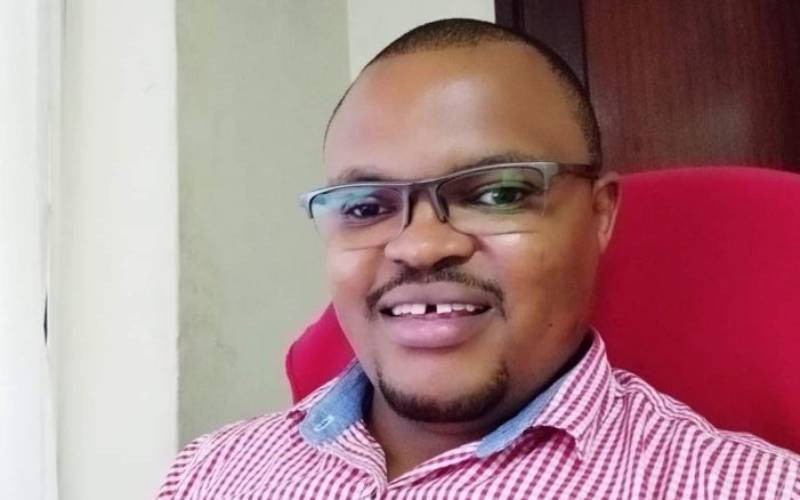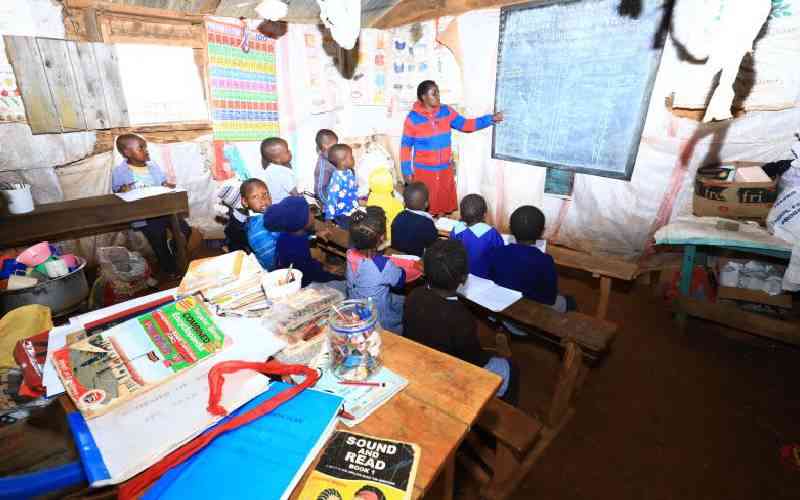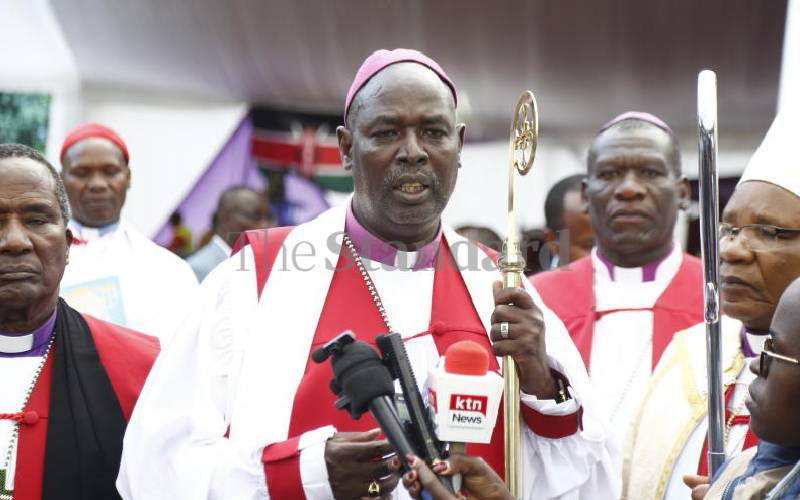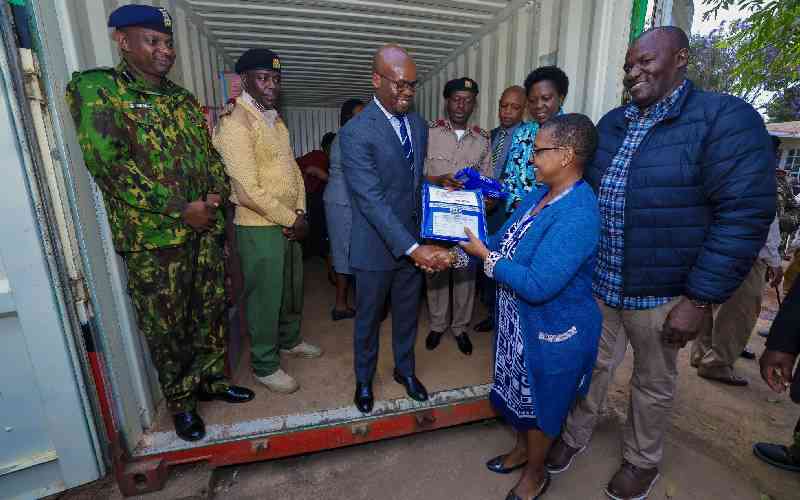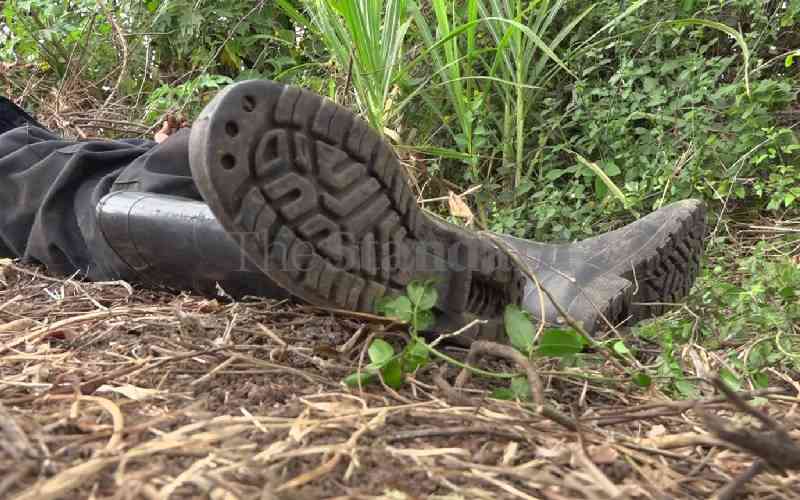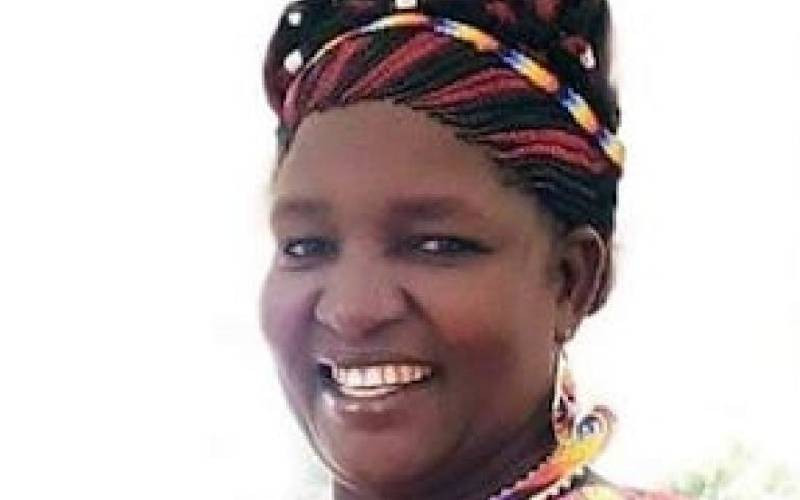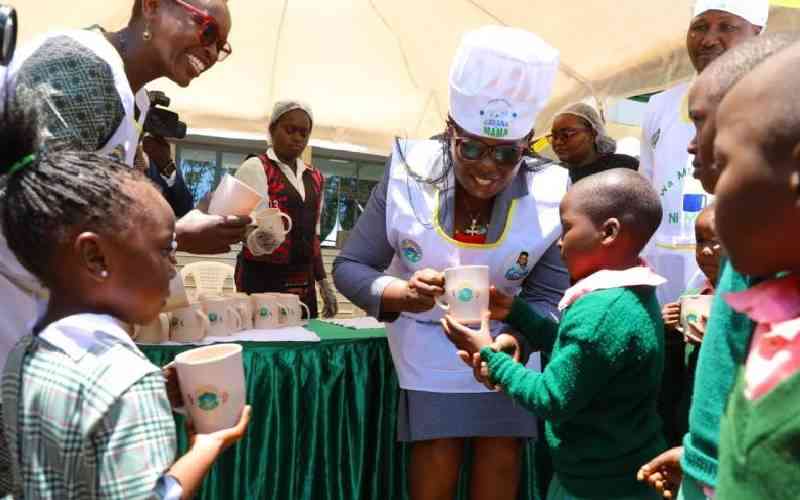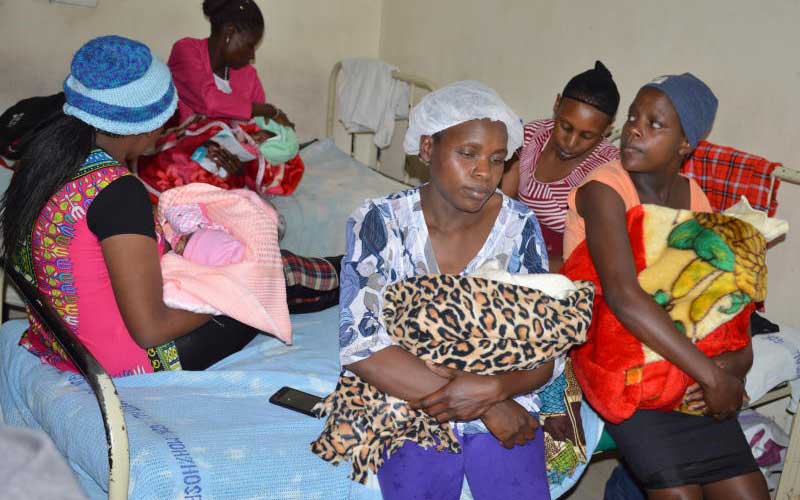
For the better part of last year, Kiambu Level Five Hospital was in the news for all the wrong reasons.
Doctors in the hospital were in July last year put on the spot after it emerged they had declared a live baby dead.
The baby’s parents, after the doctors pronounced him dead, carried the corpse and headed to their home in Rioki village, Githunguri, for the burial.
However, when they were at Kirigiti shopping centre, something happened that left them speechless.
The baby suddenly coughed, opened his eyes, started to cry and spread his arms.
The shocked parents proceeded home and conveyed the good news to family members and villagers. A banana stem was buried in the grave that had been dug, in accordance with Kikuyu traditions.
However, a few days later, the baby's health deteriorated and the family took him to Kigumo Level Four Hospital where they were referred to Gatundu Level Five Hospital. This time, the infant did not make it, unfortunately.
To this day, the baby's parents accuse doctors at Kiambu Level Five Hospital of negligence. They say had the medics acted fast enough and treated the baby, perhaps he could have survived.
And before the dust could settle on the matter, the hospital in August last year was in the limelight again after it emerged patients were going without food.
Patients said they were not served enough food and they had to ask for more from home. They claimed there was no medicine and bedding in the facility and that they were asked to carry blankets from home as a condition for admission.
At the maternity wards, it emerged that as many as three mothers and their newborns were sharing a bed.
In male wards, it was reported that two men shared a bed.
But Kiambu Governor Ferdinand Waititu defended his administration, saying there was nothing he could do to ease congestion.
He said about 50 per cent of the 1,000 patients treated at the hospital daily were from Nairobi County.
“It only means that patients receive good quality services at the hospital. That is why they keep coming here and we cannot turn them away,” said Waititu.
This week, the hospital was yet again in the news after shocking revelations that about 60 infants have died in there since December last year.
A number of mothers and relatives have come out to give accounts of their harrowing experience in the hands of the doctors and nurses.
Joseph Mureithi says he took his wife to the hospital after she developed complications during pregnancy. After two days, she underwent an operation through which a boy weighing 2.7kg was delivered.
Mureithi left the hospital for home as the baby was taken to an incubator. But the joy of the birth was short-lived. Before he reached home, he received a call. The baby had died.
“The news of my baby’s death hit me hard since it was my second child to die at the hospital immediately after birth. I don’t know why this is happening because the hospital does not explain the cause of the deaths,” Mureithi says.
Mary Wambui from Githunguri says she took her neighbour to deliver at the facility. Doctors recommended a surgery to be done after an X-ray found the baby was not well-positioned in the womb.
The operation was successful and the baby was placed in an incubator. However, the baby did not make it out of the incubator alive.
After a few days, Wambui’s neighbour was discharged but days later she was returned to the hospital after the C-section wound was infected.
“We were shocked when the hospital asked her to pay an additional Sh5,000 for a second operation, which to us was very unfair since they are the ones who did the first surgery,” says Wambui.
Wangari Ngubia was excited that she was going to see her grandchild when she took her daughter-in-law to deliver at the hospital.
The grandchild was born but died after being taken to the newborns’ unit. Ngubia says the baby developed breathing complications but nurses failed to respond in good time.
She says that day, five other women lost their babies in the hospital.
“It seems there are very many medical students without experience handling expectant mothers,” she said.
The hospital's medical superintendent, Dr Jesse Ngugi, however denies claims that medical students are the ones handling expectant women.
Ngugi says the hospital offers medical training but no student is allowed to operate or give services unsupervised.
“We have enough qualified nurses. No student attends to patients as claimed,” he says.
Ngugi says the hospital has the best newborn unit in the country where at least eight babies are delivered daily.
He says some deaths were caused by mothers’ failure to attend antenatal clinics. The doctor says many mothers only come to the hospital when they are due for delivery.
Failure to attend clinics means mothers lose out on proper guidance on required diet and behaviour, he says.
“Lack of eating well results in weak babies born when mothers are tired and malnourished,” Dr Ngugi says.
County Health Executive Mary Kamau also exonerated the hospital from blame over the infants’ death.
Ms Kamau said in December and January, the hospital delivered mothers of 1,703 babies out of which "only 60 died".
“We had a total of 60 neonatal deaths out of which 35 were pre-term babies weighing less than 1.5kg. About 50 percent of pre-term cases were referrals from neighbouring private clinics. The survival rates for severe pre-term babies are very low worldwide even under the best and most technologically advanced hospital care,” she said.
 The Standard Group Plc is a multi-media organization with investments in media platforms spanning newspaper print
operations, television, radio broadcasting, digital and online services. The Standard Group is recognized as a
leading multi-media house in Kenya with a key influence in matters of national and international interest.
The Standard Group Plc is a multi-media organization with investments in media platforms spanning newspaper print
operations, television, radio broadcasting, digital and online services. The Standard Group is recognized as a
leading multi-media house in Kenya with a key influence in matters of national and international interest.

